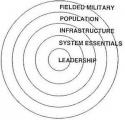Much of the popularity of cloud computing is owed to a technology known as virtualization. A host computer runs an application known as a hypervisor; this creates one or more virtual machines, which simulate real computers so faithfully that the simulations can run any software, from operating systems to end-user applications. The software "thinks" it has access to a processor, network, and disk drive, just as if it had a real computer all to itself. The hypervisor retains ultimate control, however, and can pause, erase, or create new virtual machines at any time. Virtualization means that e-mail, Web, or file servers (or anything else) can be conjured up as soon as they're needed; when the need is gone, they can be wiped from existence, freeing the host computer to run a different virtual machine for another user. Coupled with management software and vast data centers, this technology allows cloud providers to reap massive economies of scale. And it gives cloud users access to as much computing power as they want, whenever they want it.
The dream of on-demand computing--a "utility" that can bring processing power into homes as readily as electricity or water--arose as soon as computers became capable of multitasking between different users









Bookmarks